It's no secret that many people fear or hate snakes. For these individuals, the worst thing they can imagine is finding one in their yard while they are doing chores or relaxing outside. It can be a startling experience for the best of us, and truly terrifying for those who don't completely understand snakes and their role in the environment. Though they can be fearsome reptiles, most snakes are completely harmless animals simply passing through our properties in their search for food. Over the past few years, several companies have begun marketing commercial "snake repellents" that are supposedly effective in driving snakes from your property for good. So today I wanted to address a question I get from guests all the time: do snake repellents really work?
Unfortunately, no, they don't really work. In fact, most of these solutions cause MORE environmental trouble and still don't deter snakes in the slightest. So why do people believe that they work? Because, in general, people lack a fundamental knowledge regarding snakes. 9 out of 10 times, when we discover a snake in our yard, it is just passing through the area. Snakes are fairly active hunters and they travel around to find their food; when they encounter people, they tend to flee for their own safety. It's not uncommon for someone to run into a snake in their yard and immediately go buy snake repellent that they treat their lawn with. The snake, scared off by the terrifying encounter with a human, doesn't return, and the homeowner assumes the snake repellent is to thank. The reviews for these products are often pretty good despite their relative uselessness; people explain that they don't see a snake after using it, but more than likely, they probably didn't see many (if any) prior to use.
Many of these products are made of napthalene: moth balls. A lot of companies sell these as the ultimate wild-life repellent (doesn't matter if it's rodents, insects, snakes, deer, etc). But they don't work; moth balls just don't have any effect on animals and they are actually an environmental toxin. You are doing your yard far more harm than good by releasing the poisonous substance. Napthalene is a potent neurotoxin, and you are more likely to poison your own pet than a snake. Still not convinced? Discovery's Mythbusters even tested the effectiveness of napthalene on snakes, and found that it had no impact.
Other repellents are made with a mix of sulfur and naphthalene. Again, you are introducing toxin to your local environment and putting pets at risk. Sulfur is not the most pleasant means of repelling snakes; it has a potent stench to it (which in my mind is worse than the momentary snake encounter) and is easily washed away by rain (making it a waste of money). Though considered to be one of the most "successful" repellents on the market, Rex E. Marsh, a researcher from the University of California, found that virtually all snakes were unaffected by the sulfur-mix. In fact, the very few snakes that DO seem deterred are the ones we don't worry about (and actually WANT to have around): small, harmless species that are incredibly beneficial to the health of your yard.
In recent years, companies have released a new tactic in the war on snakes: sonic emitters. Basically, these devices are advertised to release a sound that humans cannot hear, but snakes can hear at a higher frequency. The sound is "unbearable" and drives the snake from the area immediately. It sounds like a perfect solution except for one teeny tiny problem: snakes don have ears, and they can't hear (especially at frequencies higher than a human). Snakes "hear" through vibrations, and would be unable to pick up on the emitted frequency. In fact, these devices have even been deemed fraudulent by the Federal Trade Commission!
Of course, people have come up with their own homemade remedies to address the problem. Fox urine, smoke, kitty-litter, lime and pepper sprays have all been employed by overzealous homeowners trying to rid their yard of snakes (several research groups have already determined that all of these methods are ineffective). Diesel fuel has also been sprinkled on lawns to drive the snakes away, and one Colorado study even believes that it may have a limited restricting impact on rattlesnakes...though the plants and beneficial insects in your yard are far more likely to be negatively affected.
Snake fences are equally ineffective. You could build the Great Wall of China around your home and it won't do anything to keep snakes out. Many of the native species of the United States are great climbers and others are fantastic burrowers. The likelihood of keeping a snake out using any form of physical barrier is incredibly low. You may slow them down, but if they really want to get around it, they will find a way.
I tell all our guests that it is best to save their money and time; these products simply don't work and are likely to cause them MORE problems in the long run. Snakes are incredibly resourceful and determined animals: when they see an area they want to get to, there isn't a whole lot you can do to keep them out. But don't fret! Despite their tenacity, there are easy ways to minimize the chances you will see a snake in your yard. Snakes are like any other animal, and they look for two things: food and shelter. If you can minimize the access to these resources, snakes will not see your yard as a desirable habitat; they will move through quickly or avoid it entirely. To reduce the likelihood of seeing a snake:
- Remove brush piles or other potential shelters. Not only do snakes make use of these hiding places, but rodents as well (the food source). Without places to hide, snakes will feel exposed and will not be inclined to hang around.
- Don't put pet food outside. Bring your pet inside to eat; food left outside will welcome in rodents, which will welcome in a certain scaly predator.
- Be active. Snakes don't like people. If you are outside now and then, the snake is going to sense you are a predator and be more likely to avoid you.
No method is one hundred percent effective. You could do everything right and still find a snake in your yard; it's just life (remember they are a native species, and we are expanding into THEIR home). If you find a snake, only one method is really effective: physically get rid of it. PLEASE NOTE: THIS DOES NOT MEAN KILL. IN MANY STATES IT IS ILLEGAL TO KILL A SNAKE UNLESS IT REPRESENTS AN IMMEDIATE THREAT (we're talking life or death situation, not because it just scared you). Know the laws of your state regarding snakes; wildlife officials have begun cracking down on homeowners to help ease the pressure on native populations. If you find a snake in your yard:
- Stay calm and move away. The snake will be equally scared and will probably dart off and you will never see it again. Most snake encounters resolve themselves this way.
- Identify the snake (from a safe distance). It could be a completely harmless, beneficial animal, but you won't know until you can accurately identify it (very few snakes are actually harmful to people in the US).
- Wait it out. I know, most people don't want to hear that but if you want a cheap and easy solution, just wait it out. The animal might be basking in the sun and may move on after a little time has passed. Just steer clear of the snake and it may disappear before you know it.
- Don't attempt to capture it yourself. Yeah, there are tons of tutorial on snake catching and trapping online, but please don't just do this yourself. Most snake injuries in the United States occur when people try to capture or kill snakes. A snake is no danger to you if you don't go near it.
- Contact a local expert. Animal control will come and collect the snake for you or you could call a snake removal expert. These individuals are happy to come and retrieve the snake and relocate it; a happy ending for everyone involved. While there is a small cost associated with this, these professionals are often more than happy to walk the property with you, and show you simple means of making your home and yard less attractive to snakes.
Snakes may be beneficial animals, but that doesn't mean everyone likes them. Fortunately, there are ways to deter them that won't cost you a penny. Please share these methods with your family and neighbors who spend time outside; it's far better to avoid an encounter than have one end in tragedy...for a human or a snake. Conservation starts at home, and we have to be mindful of the consequences of our actions (so don't poison your whole yard to drive a little snake away). A little knowledge goes a long way when dealing with snakes!
--------------------------------------------------------------------------------------------------------------
Additional Sources:
http://stoppestinfo.com/163-how-to-repel-snakes-best-natural-and-chemical-snake-repellents.html

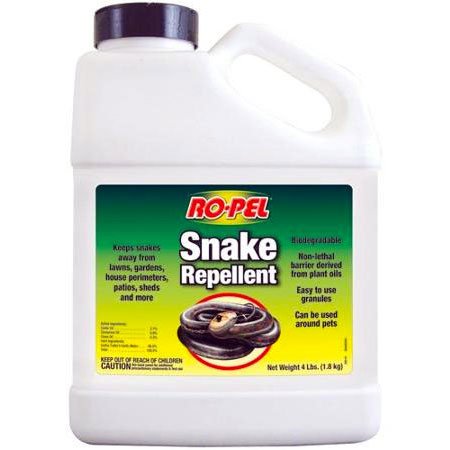
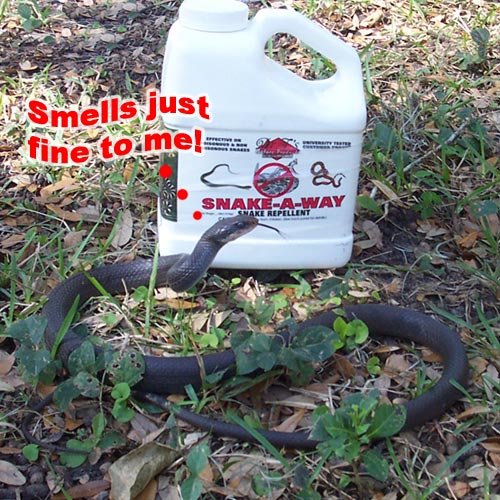

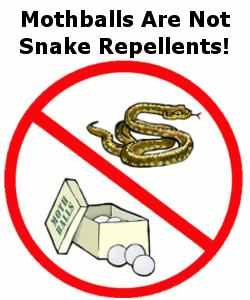
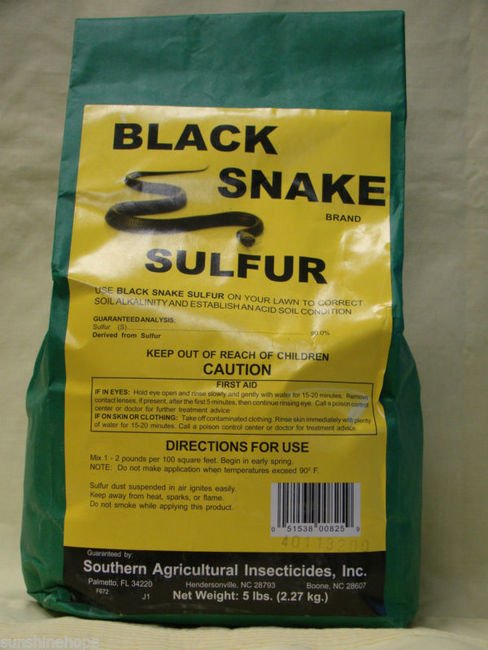
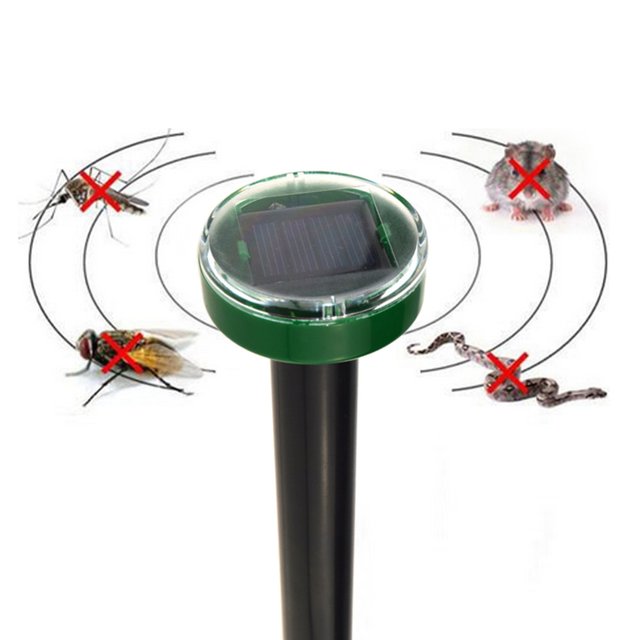
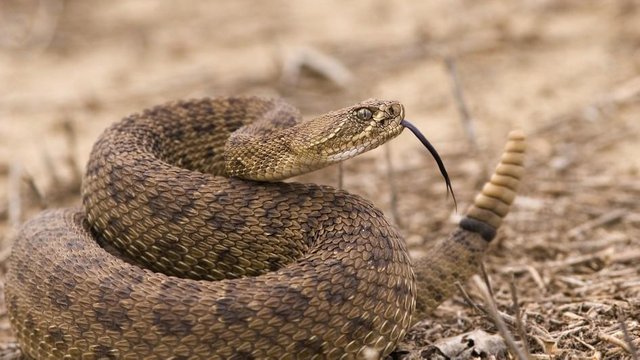
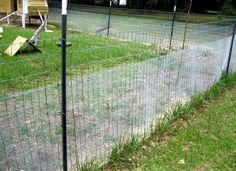

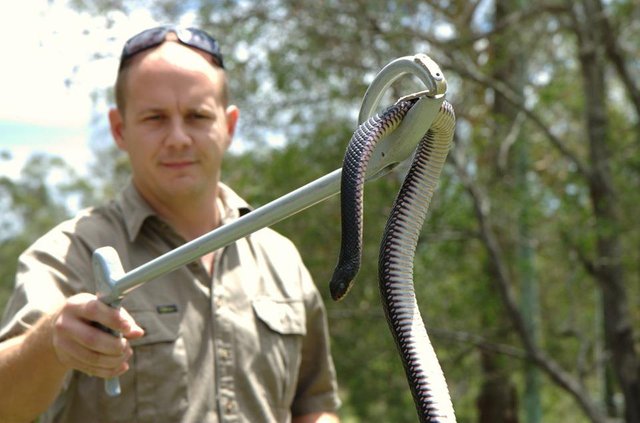

Great work! I also try to educate the public about my beloved serpents. I keep North American pit vipers. What do you keep?
Downvoting a post can decrease pending rewards and make it less visible. Common reasons:
Submit
olha que interessante parabéns a esta postagem.
Downvoting a post can decrease pending rewards and make it less visible. Common reasons:
Submit
You should check this post about finding snakes where not expected? :)
Downvoting a post can decrease pending rewards and make it less visible. Common reasons:
Submit